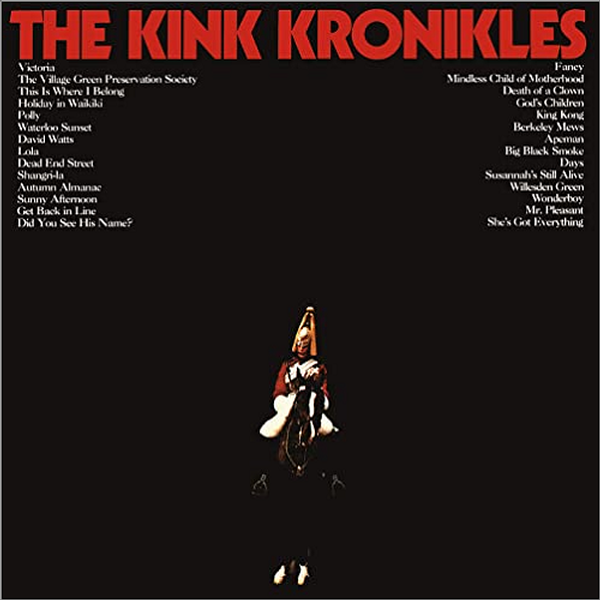






From: London, England

The Kinks came to prominence during the British Invasion period between 1964 and 1965 with their hard-driving rhythms on songs like 'You Really Got Me' and 'All Day And All Of The Night'. The band's name came from their "kinky" dress sense of leather capes and boots that they wore on stage. The group was originally comprised of Ray Davies (lead vocals, rhythm guitar, piano), his brother Dave Davies (lead guitar, vocals), Pete Quaife (bass, backing vocals) and previous Rolling Stones member Mick Avory (drums). In the U.S., they are included in the "Big Four" of the British Invasion bands along with The Beatles, Rolling Stones and Who. An ill-fated summer of 1965 tour however got the group officially banned from working in the States and they soon found their popularity on the wane during the second half of the sixties.
By 1966, singer and songwriter Ray Davies began leading the Kinks deeper into British social commentary during what many fans believe to be their most fertile period. The 1966 LP Face To Face began an enviable trilogy of albums that few of their peers ever matched in terms of imagination, lyrical originality and humor. The crunching guitar of earlier hits was replaced with acoustic guitar, piano and various instrumentation that enhanced Ray Davies' accessible melodies. 'Rainy Day In June' and 'Fancy' are prime examples of their use of droning guitar and sound effects that augment poignant lyrics, while the timeless 'Sunny Afternoon' perfectly captures everyday British life. Their next LP (Something Else By The Kinks) released in 1967, builds on the creativity of the previous album and contains the U.K. hit 'Waterloo Sunset'. Singles 'Autumn Almanac' and 'Wonderboy' display the typical Ray Davies wit that was already becoming his trademark.
In late 1968, the band's next LP (the excellent The Kinks Are The Village Green Preservation Society) was released. Although it was not the hit they expected, it contains some of the band's finest work and in it, Ray Davies reminisces about the old days in songs like 'Village Green' and 'Do You Remember Walter'. The melodious 'Songbird' and the catchy 'Picture Book' show Davies mastering the pop format while keeping a harder edge on songs like 'Big Sky' and 'Wicked Annabella'. Unfortunately the record, as good as it is, sold poorly prompting Quaife to leave and be replaced by John Dalton (bass), who had previously been a member of the Mark Four before they evolved into the Creation.
The Kinks' next project, the outstanding album Arthur (Or The Rise And Fall Of The British Empire) issued in the fall of 1969, was originally conceived as a soundtrack and closed out the decade with the minor hit 'Victoria' and also contains the excellent track 'Shangri-La'. This record too sold poorly in the U.K. but did sell modestly well in the U.S., reaching #105 on the Billboard Top LPs chart.
By 1970, the Kinks were allowed to tour in the U.S. again and responded with their first American hit in years, 'Lola.' This signaled a shift in the Kinks sound as their albums became more thematic and live shows more theatrical. They continued as an album-oriented band and remained successful into the early 1980's, becoming one of the most enduring British bands in rock. While they were never as commercially successful as their peers, The Beatles, Rolling Stones or Who, the band is frequently cited as one of the most important and influential acts of the 60s.
Easy Come, There You Went
(Originally Unreleased - 1968)

Songs from this album played on TWOS:
(Original 45 Label: Pye 7N.17321, A - May, 1967)

The Kinks Are The Village Green Preservation Society
Original LP/EP Label: Pye N(S)PL 18233
Released: November, 1968
Songs from this album played on TWOS:

This compilation CD also contains other songs by this artist that are listed under the original EP/LPs above.
Songs from this album played on TWOS:
(Original 45 Label: Pye 7N.17222, B - November, 1966)
(Original 45 Label: Pye 7N.17573, A - June, 1968)
(Original 45 Label: Pye 7N.17724, B - March, 1969)